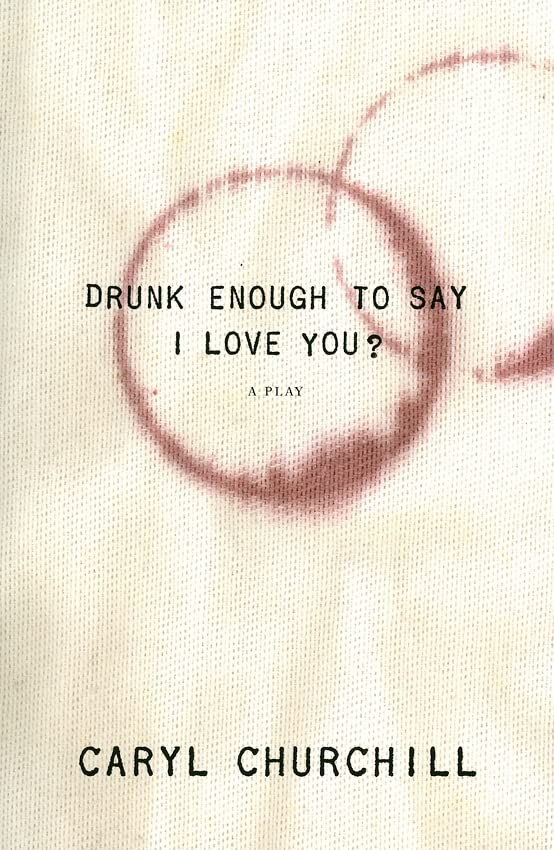Customer Services
Copyright © 2025 Desertcart Holdings Limited


Full description not available
F**O
Challenging, brilliant
Here is a play that conflates the rhetoric of war into bite size pieces and shows us that one war, particularly as we Americans get involved in them, is all wars. Churchill's staccato lines, and disjointed dialogue is not for everyone, and her play presses our continuity buttons, but this two person dialogue between an allegorical Uncle Sam and an allegorical Guy who is drawn to Sam's cockiness underscores how the language of war is a language of insanity.
E**R
Love in Our Time
Ezzat Goushegir, DePaull University, ChicagoIn a dream, in 2006, I abruptly opened a door where in the room I saw a large brown table. Under the table was GWB kissing a young blonde man in a suit. Embarrassed, he smiled and changed his position. I closed the door.Caryl Churchill's play "Drunk Enough to Say I Love You?" is as if an exploration of my dream.In "Drunk Enough to Say I Love You?" Churchill in a minimalistic form creates two characters Sam as a country and Guy as a man who falls in love with him, to lucidly portray her political view of our time. Although the play is short and contains of eight brief scenes, it takes the reader into a long journey through history of domination, invasion, covert operations to overthrowing governments by using certain torture technics as well as the usage of chemical and biological weapons to control most of the third world countries.The power game consistently dominates the private moments of the two lovers when Sam plays a complete control over Guy by demanding total commitment with him. Sam's supremacy attracts Guy, a man who left his wife and children and now submissively tries to be a part of his worldwide power.What makes this play unique and undidactic is Churchill's exploration of the theatrical language with concise and condensed sentences. The style of brief dialogues flourish through the play as the two characters complete each other's speech with unfinished sentences or unrelated words as a starting point of new subjects or arguments. That's also how certain group of people communicate to each other now days without listening or considering one another.The universality of this play's theme and its creative style can widely be discovered by directors and interpreted by actors in wide range of forms and performances.
Trustpilot
1 week ago
4 days ago